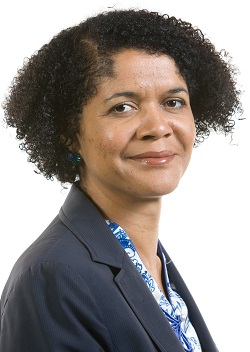Just a week before International Women’s Day, Professor Muzlifa Haniffa kickstarted NU Women’s March event season with her talk titled The celebration: diversity, unconscious bias and research culture.
Nicola Curtin, who chaired the event, listed Professor Haniffa’s many accolades as a clinician scientist; Fellow of the Academy of Medical Sciences, The Foulkes Academy of Medical Sciences medal winner, ACTERIA prize in immunology and allergology from the European Federation of Immunological Societies. At Newcastle University, she is a Welcome Trust Senior Research Fellow and Lister Institute Research Fellow as well as a consultant and clinician Dermatologist.
Alongside mapping her journey towards success in medical research, Professor Haniffa’s talk detailed raising awareness about diversity in such cultures, explaining her own experiences and how this may apply to a wider context. Professor Haniffa aimed to dismantle the ways diversity is often talked about, namely in the context of equality.
Defining diversity as an equal representation and opportunity for all groups, Professor Haniffa believed we shouldn’t stop here because there is more to the conceptual framework. Stopping here raises the question: Does diversity compromise quality if you don’t select the best?
Professor Haniffa explained that it was in her writing an article for Nature Medicine that she highlighted how that people who have been taught in the same way will always approach things in a singular fashion. Unfortunately, this is an inevitable consequence of specialisation and she personally felt that if you really want innovation in research, you need collaboration, equality and diversity. Pausing here, Professor Haniffa stated:
“I am not an anomaly, I was unpromising ten years ago and there are many more people like me”
To illustrate why diversity is positive and not just about making everyone equal, Professor Haniffa introduced an analogy in The Loudest Duck (2009) by Lauren Liswood:
“The loudest duck in China gets shot but the noisiest weasel in the U.S gets the grub”
In other words: you need to know the context and culture around you in order to gain a full perspective. Coupling Liswood’s ideas with Matthew Syed’s Rebel Ideas (2019), Professor Haniffa encouraged us to imagine a triangle as a research problem or idea space. What you want are individuals who occupy different areas of that triangle so you have a diverse group of people with a necessary skill set, creating an intelligent team to take things forward and innovate.
Conversely, if you have narrow selection process, hiring intelligent individuals but of the same backgrounds you get a team of clones occupying a small space. It is through this homogeneous way of thinking and narrow scope of operations that a team may not perceive threats, provide alternate solutions, and miss important information within the idea space.
Diversity is not just about skill set but respective of gender, age, culture and a different set of perspectives and experiences. With this understanding, diversity matters and it enhances quality. In her career, Professor Haniffa believed it was important for her to have mentors who were successful women, had a different mentor style, different leadership style, and were from all walks of life.
However, she explained that there are many barriers that can influence diverse representations, such as the lack of role models and stubborn structures or dialogues that exist within marginalised or under-represented groups. In addition, research selection criteria can be too narrow and a lack of opportunity is often mistaken for lack of ability.
Referencing her own experience, Professor Haniffa explained issues surrounding sponsorship, conflict of interests and evidencing sponsorship or mentorship throughout her career. One may ask why Professor Haniffa did not raise issues of diversity and unconscious bias sooner, but she explained that she did – intersectionality and panel dynamics silenced her questioning. By Professor Haniffa raising awareness of diversity issues within her research culture, she has in the past, been forwarded to psychological assessment rather than her boundaries being recognised.
As a result of such treatment, Professor Haniffa now raises awareness, promotes positive solutions and nurtures diverse talents in Newcastle and elsewhere in the UK and she believes she is not the first nor last.
For more of Professor Haniffa’s work, Please See:
https://www.ncl.ac.uk/chabi/people/profile/mahaniffa.html#background




